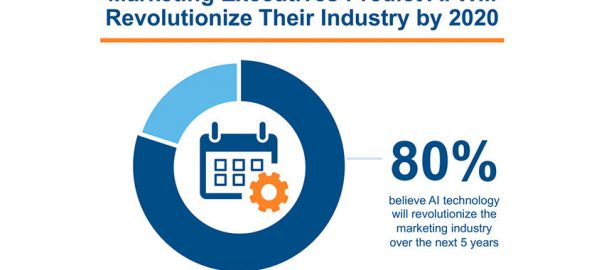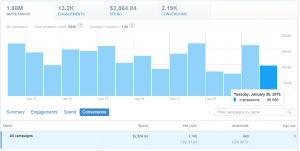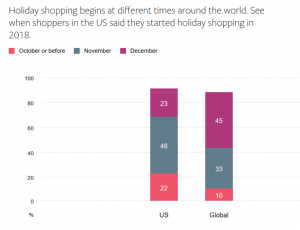For B2B marketing executives, that time frame is daunting. While it’s easy to see the power of artificial intelligence for a consumer-facing campaign, it takes some creativity to apply it as a piece of marketing technology. You understand that through algorithms, machine learning, and predictive models AI can give your marketing staying power, but you still need to prove that to your fellow c-suite colleagues. Here’s what you need to know about how AI can benefit your brand immediately.
1. It Makes for More Efficient Campaigns
There are many advantages to simplifying the essential-yet-tedious aspects of your life. The time you get back on tasks such as reporting can be spent on more difficult or rewarding work, which will ultimately result in better, more creative campaigns (and a general sense of happiness). By using AI in your B2B marketing campaigns, you can achieve all those ends and more.
More effective email campaigns, better lead generation, and improved visibility are just a few advantages where automation is leading to a marketing transformation. AI can help any B2B marketer through the onboarding process or set up a database of lapsed customers, for example.
Progressive Insurance used AI to dramatically increase the number of webinars among its nationwide network of independent agents from just nine a year to nine a day. And Advanced Micro Devices uses automation to create a global database for its headquarters, original equipment manufacturers, and partners. That’s a lot of data from a single location that AMD can use to create effective email campaigns, including A/B testing and send-time optimization. As a marketer, you have even more time to find new leads or see a better ROI, much to the satisfaction of your executives.

2. It Allows Your Brand to Get Personal
How long does it take you to draft unique emails to 10 clients? Not just a paragraph or two, but a comprehensive note that includes background information, an understanding of their personal history, and some details about how your upcoming conference is a great fit for them, specifically. Probably several hours, right? And even if you have a team crafting emails on your behalf, there’s still the review process, editing, and the back-and-forth revision of the copy before the notes are ready to go.
It might seem counterintuitive, but the absence of the human touch (in favor of AI, that is) can actually make your campaigns more personal than you can—in much less time. Not only can AI connect the dots of a client’s professional history, but it can also connect those dots to other points of similar individuals, creating a pool of people who have similar traits and personalities to target. More importantly, customer segmentation helps tailor your brand’s message to this group to create a highly personal campaign.
AI personalization also establishes a long-term, organic relationship with your clients. Whether it’s via email or through a website visit, a customer will be more inclined to engage if they feel like the message is directed to them. For account-based marketing, AI can tailor a website to specific customers ranging from ad copy to the content displayed.
3. It Can Show You the Future
Every aspect of marketing works to obtain more data about clients’ behaviors, aspirations, likes, and dislikes (and, of course, track trends in the industry itself). Through predictive analytics, algorithms can use all of this information to determine what’s next. Then, predictive data can help engage lapsed customers or tailor emails that are more likely to be opened in the future.
According to the Harvard Business Review, predictive analytics are already transforming the marketing industry by predicting demand, improving product pricing, anticipating maintenance (knowing when and why machines and processes might fail), and helping develop new, innovative apps. And, the publication explains, many of those transformations are reason enough to invest in AI. “The value described from predicting demand more accurately, better pricing, and predictive maintenance are the specific use cases that easily justify large firms’ investments in big data infrastructure and data science. These uses are likely to drive value of the same order of magnitude as the investments.”
If you’re ready to incorporate AI into your content marketing efforts, check out Skyword Personalized Recommendations: an artificial intelligence-based engine that delivers personalized on-site and email recommendations.







